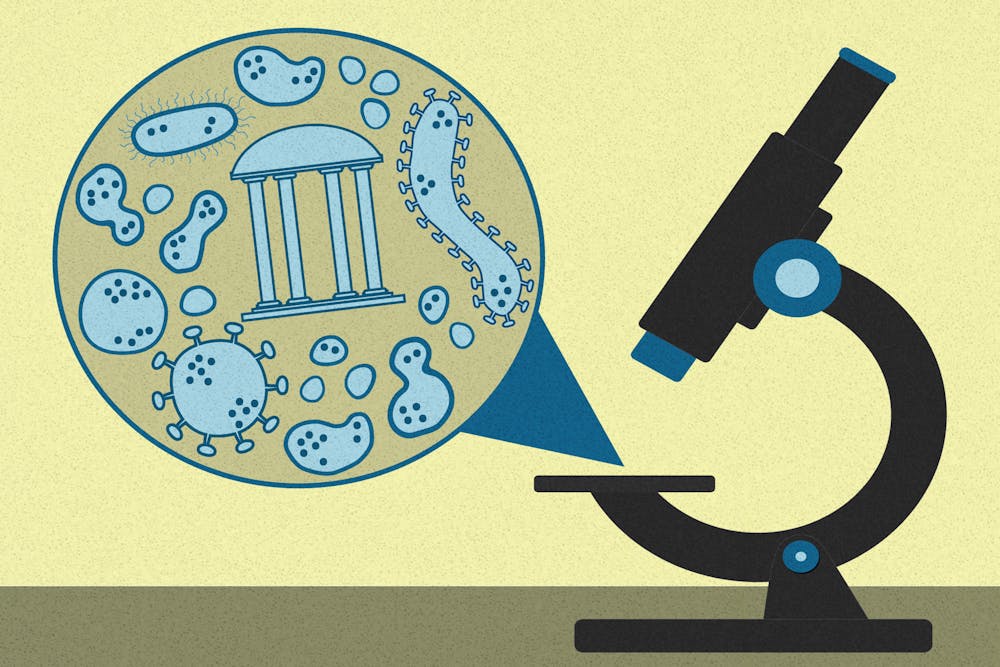Penny Gordon-Larsen, UNC's vice chancellor for research, said that undergraduate students are a critical part of the research enterprise. In 2024, their efforts continued to play an important role.
“A lot of really amazing ideas come from undergrads just dreaming up what's possible,” she said. “And so that's always really energizing.”
UNC offers a variety of pathways for undergraduates to get involved in research, from structured programs to faculty-led initiatives.
Institute for Risk Management
UNC's new Institute for Risk Management and Insurance Innovation is providing undergraduates with opportunities to address challenges in natural disasters and other emerging risks. First-year Dhairya Agarwal, majoring in environmental science and computer science, recently joined the institute after connecting with research director HB Zeff at the UNC Research and Discovery Fair.
Agarwal optimizes wildfire risk and carbon credit buffer pool models to ensure they are more accurate.
“Because wildfires were not really that predictable 10 years ago, and these buffer pools calculations were calculated 10 years ago, we want to make them more accurate so they're able to account for modern day changes,” he said.
Zeff said that the institute is accessible for students new to research. He said undergraduate researchers just need a computer and a willingness to learn to succeed in his lab.
“What we do is try to teach the undergrads basic research skills about how to kind of formulate a research question [and] where to go and find data to be able to answer that research question,” he said.




